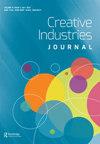Rio de Janeiro, cultural consumption experiences in the new port area: the Museum of Tomorrow, Rio Art Museum and the National Museum of Fine Arts
IF 0.9
0 HUMANITIES, MULTIDISCIPLINARY
引用次数: 1
Abstract
Abstract Rio de Janeiro represents one of the largest creative economy centers in Brazil and underwent urban renewal in preparation for hosting global events. This research aims to investigate cultural consumption patterns and the symbolic importance of the dockland regeneration project as well as its impact on city branding. The first round of data collection was conducted in 2016, the year of the Rio Olympic Games, and the second in 2018, in two new cultural facilities – the Museum of Tomorrow and Rio Art Museum, and an old institution – the National Museum of Fine Arts. The results indicate that the new museums represent a cultural consumption alternative, aligned with the city branding project; however, the old institution seems excluded. The contribution of this paper is to provide insights for museum managers and public authorities regarding issues related to the potential of cultural consumption for the development and branding of a city.里约热内卢,新港区的文化消费体验:明日博物馆、里约美术馆和国家美术馆
摘要里约热内卢是巴西最大的创意经济中心之一,为举办全球活动进行了城市更新。本研究旨在调查文化消费模式、码头区再生项目的象征意义及其对城市品牌的影响。第一轮数据收集是在2016年里约奥运会期间进行的,第二轮数据收集于2018年,在两个新的文化设施——明天博物馆和里约美术馆,以及一个旧的机构——国家美术馆进行。研究结果表明,新博物馆代表了一种文化消费选择,与城市品牌项目相一致;然而,旧制度似乎被排除在外。本文的贡献是为博物馆管理者和公共当局提供与文化消费对城市发展和品牌的潜力相关的问题的见解。
本文章由计算机程序翻译,如有差异,请以英文原文为准。
求助全文
约1分钟内获得全文
求助全文
来源期刊

Creative Industries Journal
Arts and Humanities-Visual Arts and Performing Arts
CiteScore
2.40
自引率
27.30%
发文量
30
期刊介绍:
The scope of the Creative Industries Journal is global, primarily aimed at those studying and practicing activities which have their origin in individual creativity, skill and talent, and which have a potential for wealth creation. These activities primarily take place in advertising, architecture, the art and antiques market, crafts, design, fashion, film, interactive leisure software, music, the performing arts, publishing, television and radio.
 求助内容:
求助内容: 应助结果提醒方式:
应助结果提醒方式:


